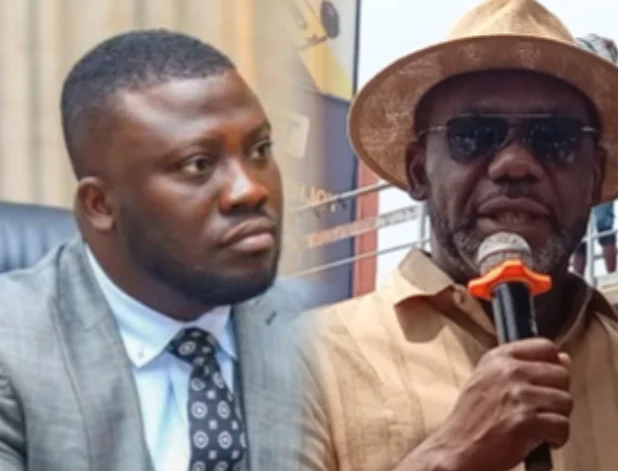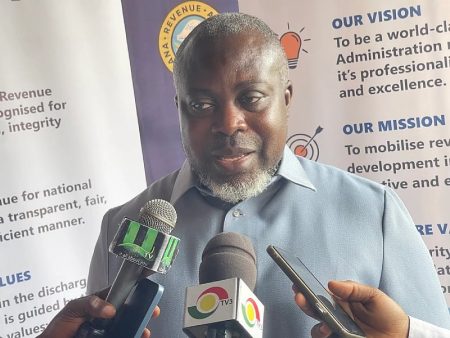The aftermath of the devastating Adum PZ fire outbreak in Kumasi, Ghana, has spurred a call for compassionate leadership from Dr. Matthew Opoku Prempeh, also known as Napo. Addressing the Ashanti Regional Minister, Dr. Frank Amoakohene, Napo urged a more empathetic approach to the plight of the traders who lost their livelihoods in the blaze. The fire, which ripped through the market, left a trail of destruction and economic hardship in its wake. Napo’s plea, delivered during a donation event where he personally contributed GH₵150,000 and 600 bags of cement towards the market’s reconstruction, underscored the need for authority to be exercised with sensitivity and understanding, particularly in times of crisis. He emphasized that the affected traders are not isolated individuals but members of a community, connected to prominent figures who have also stepped forward to assist in the recovery efforts.
Napo’s appeal for compassionate leadership directly challenged the Regional Minister’s handling of the situation. He highlighted the importance of recognizing the human element in the exercise of authority, stressing that leadership should be a source of blessing and support, not a cause of further hardship. His words resonated with the underlying theme of unity and understanding, crucial for navigating the challenging period of recovery. He reminded the Minister that the traders are not merely statistics or anonymous individuals; they are people with families, connections, and contributions to the community. The implication was clear: the response to the disaster should reflect this human dimension, prioritizing empathy and understanding alongside practical measures for rebuilding.
The donation of funds and building materials by Napo served as a tangible demonstration of his commitment to supporting the affected traders. This act of generosity, coupled with his public appeal to the Regional Minister, signaled a broader call for collective responsibility in addressing the crisis. He underscored the shared nature of the tragedy, noting that the affected traders have connections to influential individuals, including Vice President Dr. Mahamudu Bawumia and Member of Parliament Kennedy Agyapong. By highlighting these connections, Napo emphasized that the fire’s impact extended beyond the immediate victims, touching a wider network of individuals and communities. This emphasized the importance of a united and coordinated response, transcending political or social divisions.
Napo’s message also extended beyond immediate relief efforts, advocating for proactive measures to prevent future market fires. He argued that the current disaster should serve as a catalyst for improved fire safety regulations and infrastructure within markets. This proactive approach, he suggested, would demonstrate a genuine commitment to the well-being of traders and the long-term stability of the market. He emphasized the need for a comprehensive review of existing fire safety protocols, including inspection regimes, emergency response plans, and the availability of fire-fighting equipment. This forward-looking perspective highlighted the importance of learning from the tragedy and implementing measures to prevent similar incidents from occurring in the future.
Furthermore, Napo’s call for fairness and compassion extended to the distribution of aid and the overall management of the recovery process. He stressed the importance of ensuring that the allocated resources reach those who need them most, emphasizing transparency and accountability in the disbursement of funds and materials. This call for equitable distribution of aid reflected a broader concern for social justice, ensuring that all affected traders, regardless of their background or connections, receive the support they deserve. He also emphasized the need for a transparent and efficient process for assessing damages and distributing aid, minimizing bureaucratic hurdles and ensuring that assistance reaches those who need it most.
In conclusion, Napo’s response to the Adum PZ fire tragedy transcended a simple act of charity. It constituted a powerful appeal for compassionate leadership, a call for unity in the face of adversity, and a plea for proactive measures to prevent future disasters. His words and actions underscored the fundamental principle that true leadership lies not just in wielding authority but in exercising it with empathy, understanding, and a genuine concern for the well-being of the people. He challenged the Regional Minister to embrace this principle, transforming the tragedy into an opportunity to build a more resilient and compassionate community. His message resonated with the spirit of collective responsibility, urging everyone to play their part in supporting the affected traders and ensuring a safer future for all.














